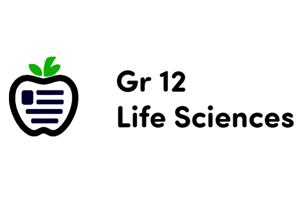Podcast
Questions and Answers
Which part of the brain is responsible for motor coordination and balance?
Which part of the brain is responsible for motor coordination and balance?
- Corpus callosum
- Cerebrum
- Cerebellum (correct)
- Brainstem
What is the function of the brainstem?
What is the function of the brainstem?
- Control essential functions like breathing and heart rate (correct)
- Regulate body temperature
- Responsible for thinking and memory
- Control motor coordination
How is the cerebrum divided?
How is the cerebrum divided?
- Into upper and lower lobes
- Into gray and white matter
- Into left and right hemispheres (correct)
- Into frontal and temporal lobes
Which part of the brain is responsible for higher cognitive functions like thinking and memory?
Which part of the brain is responsible for higher cognitive functions like thinking and memory?
The cerebellum uses information from which parts of the body to control movements?
The cerebellum uses information from which parts of the body to control movements?
What is the main function of the brain?
What is the main function of the brain?
What region of the brain is crucial for forming and consolidating memories?
What region of the brain is crucial for forming and consolidating memories?
Where does the processing of emotions primarily occur in the brain?
Where does the processing of emotions primarily occur in the brain?
Which part of the brain is involved in processing information, evaluating options, and making choices?
Which part of the brain is involved in processing information, evaluating options, and making choices?
What is the process called when new information is encoded into long-term memory?
What is the process called when new information is encoded into long-term memory?
Which brain structure is responsible for triggering fear and anger responses?
Which brain structure is responsible for triggering fear and anger responses?
What is essential for learning and memory as the brain continues to develop throughout a person's lifetime?
What is essential for learning and memory as the brain continues to develop throughout a person's lifetime?
Flashcards are hidden until you start studying
Study Notes
Brain Structure and Functions
The brain is one of the most complex structures in the human body, with a mass of about 1.4 kg in adults. It is a vital organ responsible for controlling all bodily functions, including breathing, digestion, and regulating body temperature. Additionally, the brain is essential for higher cognitive functions such as thinking, memory, and emotion.
Structure of the Brain
The brain is divided into three main parts: the cerebrum, the cerebellum, and the brainstem. The cerebrum is the largest part of the brain, responsible for higher cognitive functions such as thinking, memory, and emotions. It is divided into two hemispheres, the left and right hemispheres, which are connected by a band of nerve fibers called the corpus callosum.
The cerebellum, located at the back of the brain, is involved in motor coordination and balance. It uses information from the brainstem and spinal cord to control movements, including coordinating muscle contractions and maintaining balance.
The brainstem is the lower part of the brain that connects it to the spinal cord. It is responsible for controlling essential functions like breathing and heart rate, as well as reflexes.
Functions of the Brain
The brain's primary function is to control all bodily functions, including breathing, digestion, and regulating body temperature. It also plays a crucial role in higher cognitive functions such as thinking, memory, and emotion.
Thinking
The brain's frontal lobe is responsible for thinking and decision-making. It is where you process information, evaluate options, and make choices.
Memory
The hippocampus, a region located within the temporal lobe of the brain, is crucial for forming and consolidating memories. It is responsible for converting short-term memory into long-term memory.
Emotion
Emotions are a complex mix of physiological and psychological responses. The amygdala, a small almond-shaped structure located in the brain, is involved in processing emotions. It is responsible for triggering fear, anger, and pleasure responses.
Learning
Learning occurs when new information is encoded into long-term memory. This process involves the hippocampus and the cerebellum, which work together to form conditions for learning.
Brain Development
The brain continues to develop throughout a person's lifetime, with new neural connections forming and strengthening existing ones. This process is known as neuroplasticity and is essential for learning and memory.
Studying That Suits You
Use AI to generate personalized quizzes and flashcards to suit your learning preferences.





